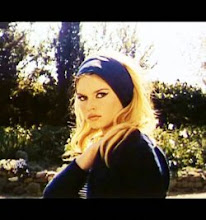
date watched: May 12, 2009
location: Film Forum, NYC
Many people wonder whether life examination in old age is beneficial, and whether it helps in acceptance of death. Our dear abuelo in La Ventana is more fixated on a dream he has, than the overall meaning of his life. If Umberto D. (Vittoria de Sica, 1952) and Wild Strawberries (Ingmar Bergman, 1957) are like dissertations on growing old, then Le Ventana is more like a thesis. It only shows us a slice of this man's life, and the duration is not even a full day.
Hollywood blockbusters give us rapid cuts, explosions, and close-cut action sequences; but there's been a recent interest in the slow-paced, Ozu-like, meditative films. I daresay that we are even dealing with the posterity of the cult classic, Jeanne Dielman (Chantal Akerman, 1975). The scenes are "empty," and the camera is more interested in lingering on frames. It echoes Don Antonio's baby steps through the country fields, as his octogenarian limbs no longer swing the way they used to. I particularly like the poignant scene in which he sits on the grass, waving and yelling to the young boy who has just caught a hare and walks home with his two hounds. It is as if everyone is moving but him.
By the way, the film was shot on location in the Patagonian countryside, and the visuals are are pretty as paintings. Great work, Julián Apezteguia! (the cinematographer)
There is also a Persona (Ingmar Bergman, 1966) element to the film, seen in the beginning and ending, when Don Antonio's memory is likened to a faded celluloid reel. This film-within-a-film is one of the more poetic aspects of the film, and it definitely works well as an intro and conclusion to this "thesis."
The piano tuner's presence is also an ingenious choice on Sorin's part: like the old piano that must be cranked and tweaked to regain its voice, Don Antonio wracks his brain trying to fine-tune his images of his childhood babysitter. It's ironic that in his (supposed) last moments, the only one in the room is his son's girlfriend, who seems to be more interested in her phone's reception than the ill man in front of her.
Like the film, San Juan (the estate in which the narrative enfolds) and its varying inhabitants must be dealt with patiently. The only means of contact is through a radio (Alberto sounds like he's at a military base, ending every word with "over." VERY serious.) and all food is cooked over the fire, not in the microwave. In a world so overwhelmed with choices, we need to all take a moment to be Don Antonios and Isak Borgs, and sift our memories--manually, not automatically--before they become an indistinct pulp.

No comments:
Post a Comment